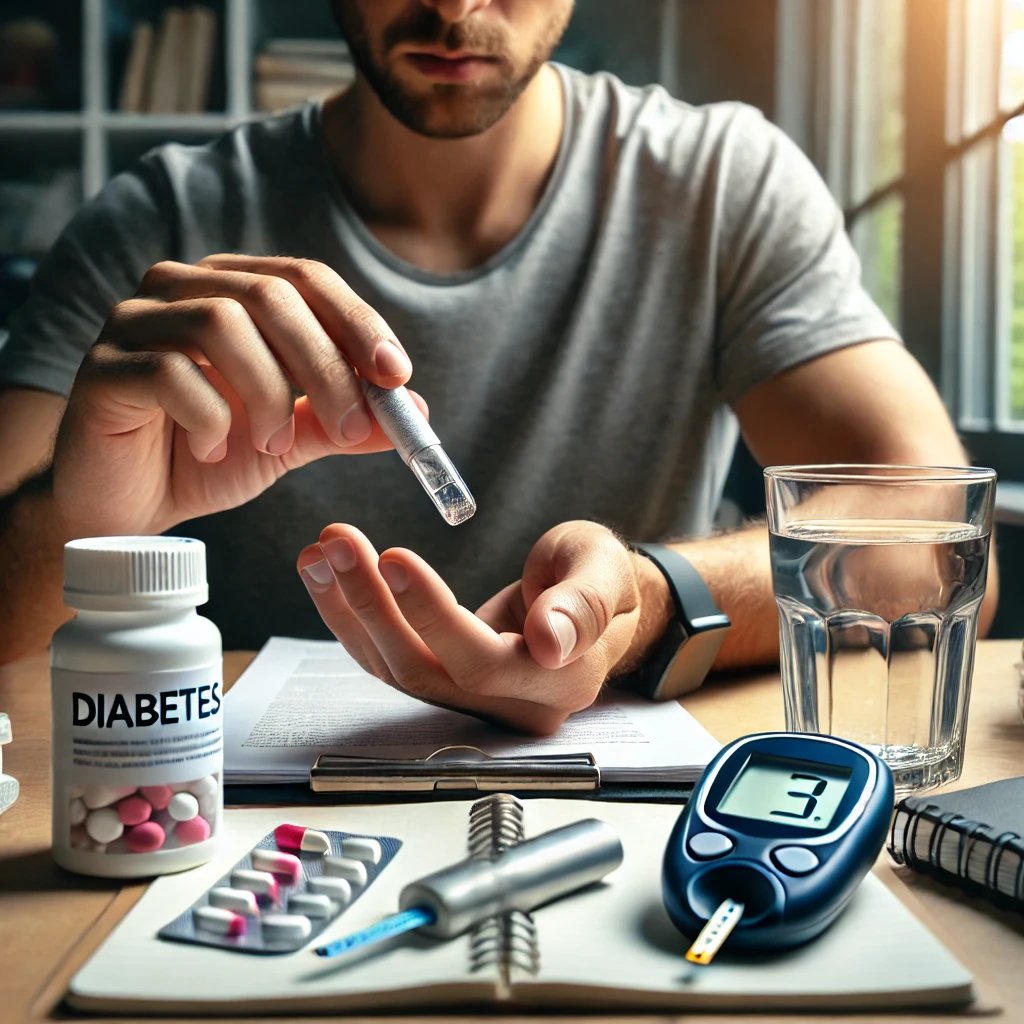Modern lifestyles have led to an increase in various health issues, with diabetes being one of the most prevalent. The combination of unhealthy habits—such as eating junk food instead of nutritious meals and sitting for long hours without much physical activity—has accelerated the spread of diabetes. Traditionally, diabetes was more common among older adults, but today, it’s affecting young adults and even children. Unfortunately, there is no permanent cure for diabetes. However, timely management is essential, as unchecked diabetes can become life-threatening. Here, we’ll explore effective tips and remedies for bringing high blood sugar levels down swiftly.
Hyperglycemia, or elevated blood sugar, affects individuals with both type 1 and type 2 diabetes, as well as gestational diabetes in pregnant women. Sometimes, even those without diabetes can experience elevated sugar levels due to factors like stress, high-carb or sugary foods, missed medications, lack of sleep, dehydration, or physical inactivity.
The normal fasting blood sugar level should range between 70 mg/dL and 100 mg/dL. When fasting blood sugar is between 100 and 125 mg/dL, lifestyle adjustments and consultation with a doctor are often recommended. Generally, before meals, normal blood sugar levels are between 90 and 100 mg/dL, and after meals, they should ideally be between 130 and 140 mg/dL. Elevated levels are typically considered when readings exceed 126 mg/dL before meals and 160 mg/dL post-meals.
Quick Tips for Lowering Blood Sugar Levels
Many people rely on various methods to lower blood sugar, including insulin injections and sugar-free medications. However, lowering blood sugar too quickly can lead to hypoglycemia, a condition known as diabetic ketoacidosis (DKA), which can be dangerous. Below are safe and effective ways to reduce blood sugar levels without risking these side effects.
- Exercise Regularly
A lack of insulin or poor insulin utilization often causes blood sugar levels to rise. Exercising can aid in quickly lowering blood sugar levels by enhancing insulin effectiveness, allowing the body to convert extra glucose into energy. A 30-40 minute workout can help manage elevated levels. However, if blood sugar exceeds 240 mg/dL, check for ketones in your urine before exercising, as high-intensity workouts can occasionally spike blood sugar temporarily. - Consume Fenugreek
Fenugreek, a common kitchen spice, can help lower blood sugar levels effectively. You can soak fenugreek seeds overnight and eat them on an empty stomach or take fenugreek powder with warm water before bed. Fenugreek is bitter but is a powerful natural remedy for blood sugar management. - Eat Jamun (Indian Blackberry)
Jamun contains anthocyanins and ellagic acid, which are beneficial in lowering blood sugar. Regular consumption of Jamun and its seeds can help manage sugar levels naturally, thanks to glycoside jamboline and alkaloid jambosine, which are present in the seeds. - Drink Bitter Gourd Juice
Bitter gourd juice has anti-diabetic properties and helps reduce glucose levels in the blood. Drinking bitter gourd juice on an empty stomach improves glucose metabolism and reduces blood sugar levels effectively. - Use Turmeric
Curcumin, found in turmeric, increases insulin sensitivity and helps cells utilize sugar effectively. Turmeric can be consumed in food, as tea, or as a supplement. It offers quick results but should be part of a broader diabetes management plan. - Chew Cloves
Cloves contain eugenol, which helps improve insulin utilization. You can chew cloves or add clove powder to your meals to assist in managing blood sugar. - Add Cinnamon to Your Diet
Cinnamon can help lower blood sugar. Add it to foods like oatmeal or yogurt, or make a cinnamon tea by steeping it in warm water. Cinnamon enhances insulin efficiency, allowing sugar to be used by cells more effectively. - Consume Amla (Indian Gooseberry)
Rich in antioxidants, amla can help lower blood sugar. Eating fresh amla or drinking its juice aids in managing sugar levels effectively. - Eat Basil Leaves
Basil leaves contain compounds that can quickly reduce blood sugar levels. Chew fresh basil leaves or make a tea to help control elevated levels. - Drink Green Tea
Polyphenols in green tea, especially catechins, help improve insulin function and reduce blood sugar levels. - Use Neem Leaves
Neem leaves have compounds that may help regulate blood sugar levels. Boil neem leaves, strain, and drink the water to help reduce sugar. - Take Insulin as Advised by Your Doctor
Insulin is crucial for managing severe cases of high blood sugar. Always follow your doctor’s instructions to avoid the risk of hypoglycemia. After taking insulin, monitor your levels after 30 minutes to ensure it doesn’t drop too low.
When to Contact a Doctor
According to the University of Michigan, blood sugar levels above 300 mg/dL are dangerous. If your levels repeatedly reach 300 mg/dL or higher, consult a doctor immediately. Self-medication or relying solely on home remedies can be harmful if blood sugar levels are significantly high.
Incorporating these tips, along with balanced meals, regular exercise, and routine blood sugar checks, can effectively help manage elevated blood sugar levels.

